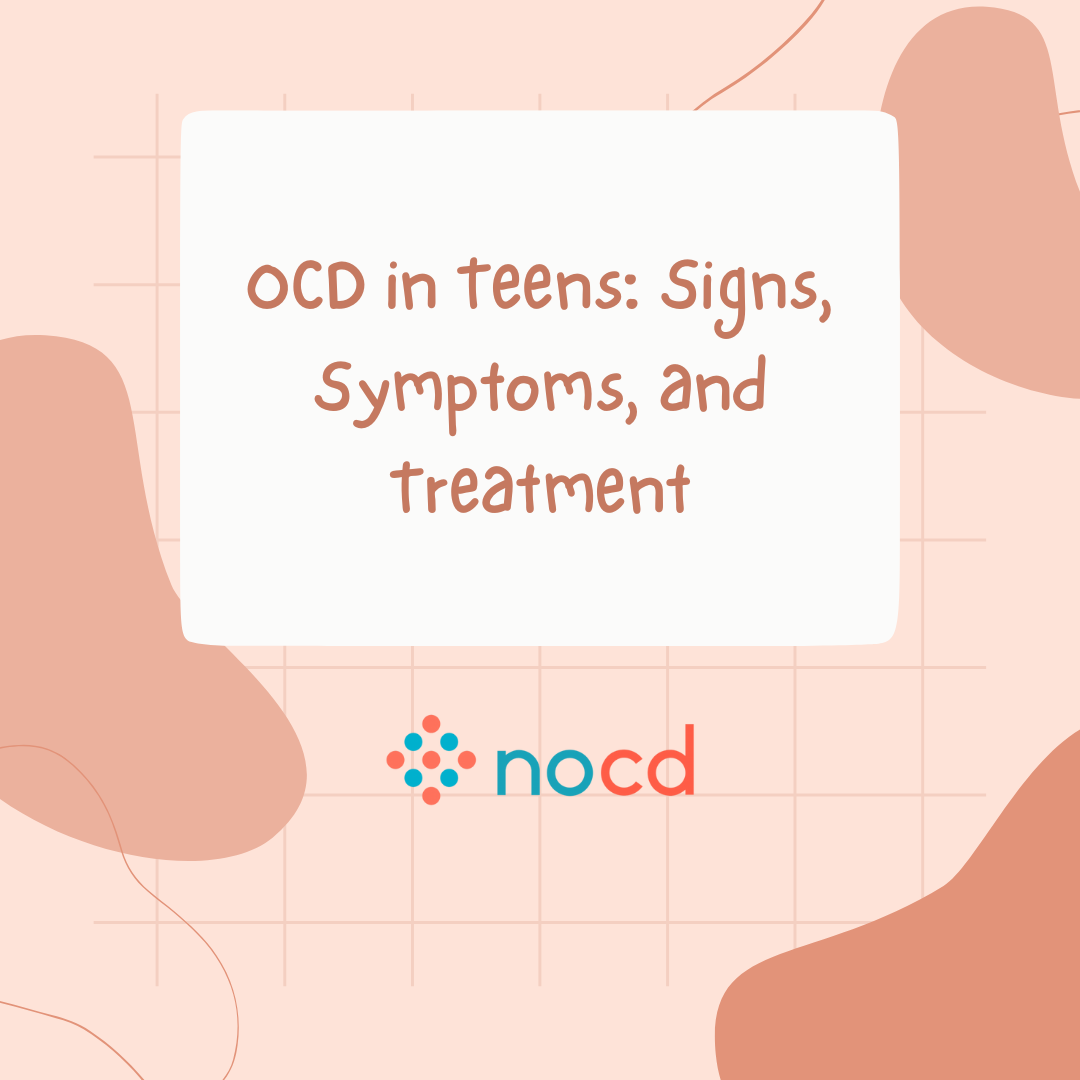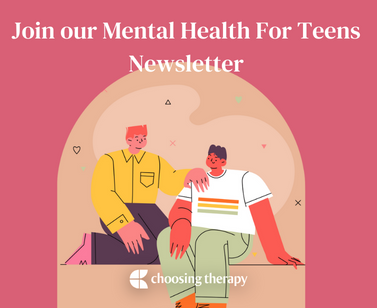Noticing an improvement in how your teen manages their stress, expresses their needs, and displays their emotions could all be signs that they are benefiting from therapy. While it can often be hard to gauge how therapy is affecting your child, it’s important to keep in mind that progress takes time and looks different for everyone.
How Will I Know If Therapy Is Helping My Teen?
There are many factors to consider when trying to determine if therapy is helping your teen. Sometimes, a change in the nature of their concerns (like deep-rooted underlying issues being resolved) can be a sign of growth. Additionally, a strong, trustworthy relationship between your child and their therapist is a healthy thing to look out for. If your teen is open and relaxed while engaged in sessions, chances are that progress is being made at a steady pace.
Here are some potential signs that your teen is benefiting from therapy:
- Applying learned coping skills
- Improved mood
- Better stress and anger management
- Increased school participation and attendance
- A healthy balance of socialization and responsibilities
- Openness to engage in conversations within the family dynamic
Popular Options For Teen Mental Health
Talkspace – Online Therapy For Teens. A space for your teen to talk about what’s going on, develop coping skills, and start feeling better. Covered by most major insurance plans. Get Started
Charlie Health – Therapy Once Per Week Isn’t Always Enough. Charlie Health’s virtual mental health program includes curated peer groups, individual therapy, and family therapy for teens and young adults with serious mental health issues. Insurance accepted. Learn More
Equip – Eating Disorder Treatment That Works – Delivered At Home. Are you worried that your child has an eating disorder? With the right treatment, lasting recovery is 100% possible. Equip offers virtual evidence-based care, so you can help your loved one recover at home. We take insurance! Get a Consultation
What Results Can I Expect From My Teen Being in Therapy?
While not all teens will react in the same ways to therapy, some positive results to expect might include an increased ability to consider others’ perspectives, improved communication, and better problem-solving techniques. These changes can further improve the relationship between you and your teen, as well as within the family dynamic and other areas of your teen’s life.
More Empathy
You may also notice that your teen has become more aware of others’ viewpoints and feelings. Prior to therapy, your teen may have been quick to ignore or dismiss any sort of feedback from you or other authority figures. While this behavior change may not be obvious at first, you may notice that their desire to challenge or question you has decreased, or that they’ve become more thoughtful or mature.
Better Communication
Additionally, therapy may result in improved communication skills, allowing your teen to better express their needs and emotions. This can help reduce the chance of unnecessary stress and arguments. Your teen will also better understand how to handle day-to-day stressors. Adopting healthy problem-solving skills will help your teen continue to work on their personal and professional development.
How Can I Set Goals With My Teen’s Therapist?
Before your teen’s first session, it can be helpful to discuss goals with their therapist. It is also beneficial to consult with your teen to learn about their expectations first, before expressing your own. What your teen genuinely wants to improve and focus on should be both yours and their therapist’s top priority. This helps prevent your teen from shutting down before they even have a chance to get started.
What Are Some Reasonable Goals to Set?
The goals that you, the therapist, and your teen set will all be tailored to your teen’s situation. The reason for your child’s therapy may include school-related stressors, future planning, anxiety, depression, bullying, gender dysphoria, among others. It’s important to understand that these motives will determine what outcomes to expect.
Some goals that may be appropriate, depending on your teen’s situation, include:
- Develop coping strategies to manage school anxiety
- Learn ways to overcome social anxiety
- Harm-reduction strategies for self-injurious behaviors
- Improve overall feelings of self-esteem and confidence
- Gain insight and build perspective to cope with day-to-day stressors
How Often Should I Check In With My Teen’s Therapist?
Checking in with your teen’s therapist is very common, but you should discuss what frequency is healthy with them. Depending on the severity of your teen’s situation, check-ins may be rare, unless something noticeably concerning has developed. You may feel uncomfortable with this, but remind yourself that your teen is in the care of a professional.
If you are checking in with your teen’s therapist too regularly, it may be impacting the trust being built between your teen and their therapist. If your teen gets the sense that either you or their therapist are discussing things they’ve shared in confidence, they may no longer feel comfortable expressing their concerns. Check-ins should always be brief and serve the purpose of monitoring your teen’s progress.
Charlie Health - Therapy Once Per Week Isn’t Always Enough Charlie Health’s virtual mental health program includes curated peer groups, individual therapy, and family therapy for teens and young adults with serious mental health issues. Insurance accepted. Learn More
How Should I Handle Bumps in the Road?
Unexpected obstacles are part of any therapeutic process. Allowing your teen to apply the skills they’ve learned is helpful when overcoming these hurdles. Your teen may become rebellious or appear to be regressing for a variety of reasons. For instance, they may not see the benefits right away and resist going to sessions. Your teen may also be interacting with peers who encourage them to engage in unhealthy activities or behaviors. Or, their rebellion may be an attempt to regain control of their independence.
Listen With Compassion
As a parent, it’s important that you listen to what your teen has to say. Maintain a non-judgmental and curious attitude, share your observations in a reassuring way, and consider asking questions that uncover the root of their behavior. Ask them how they feel about their therapist, what they’re learning, and their personal progress. Be prepared for your teen to respond negatively, but work with them on exploring solutions to address their frustrations.
Talk to Their Therapist
You may also consider sharing concerns with your teen’s therapist. Ask them for suggestions on how to handle the resistance your teen is conveying. Their advice can provide powerful insights to help you effectively communicate with your child, without damaging the trust they’ve built with both you and their therapist.
How Else Can I Support My Teen During the Therapy Process?
Your teen may still find themselves processing thoughts and feelings long after a therapy session has ended. The concerns and problems that are being addressed may take longer to address, so how you offer support for your teen’s therapy journey depends on their individual situation. The dynamic of your relationship and the way that your teen manages their emotions may determine how they want to be supported.
Here are a few ways in which you can support your teen during the therapy process:
- Give them space
- Allow your teen to come to you first
- Be present and available
- Consider therapy for yourself
- Create a mutual plan to check-in with your teen
- Highlight the positive changes that your teen is making
How Long Should My Teen Be in Therapy?
The typical length of time for a teen to be in therapy varies. Depending on the therapist’s approach, the goals and objectives for therapy, the nature of your teen’s stressors, and their diagnosis, treatment could take as little as four weeks or as long as a year. Having a realistic expectation for the duration of treatment is important.
If your teen suffers from a condition such as anxiety or depression, there are often underlying problems and concerns that need to be addressed before progress is possible. It is common for teens in these cases to spend anywhere from 6 months to a year plus in therapy, as they continue to learn healthy coping-skills. When concerns are more specific and targeted– like instances of teenage social anxiety, behavioral issues, or major life events– you may find that your teen doesn’t need as much therapeutic treatment.
When Will My Teen Be Ready to Graduate From Therapy?
There is no clear sign to indicate when your teen is ready to graduate from therapy. Typically, when your teen begins therapy, a treatment plan is discussed with their therapist to agree on a handful of objectives to tackle. As treatment continues, the therapist reviews and records your teen’s progression towards achieving their goals. It is a good idea to have a conversation with your teen and their therapist about what readiness to graduate from therapy looks like.
Signs that your teen might be ready to graduate from therapy include:
- Reactions to stress have significantly improved
- Day-to-day problems appear more manageable
- More predictable moods and behaviors
- Being more engaged in school
- Improved relationships with family and friends
- Ability to independently problem solve
Final Thoughts
Trust and rapport is crucial to any therapeutic process, especially for teens. There is certainly hope for your teen and it pays to be patient, understanding, and compassionate throughout the journey. Allow space for your teen and their therapist to work together, while continuing to be an additional support. It will be beneficial if you find a therapist for yourself, too, so you can better navigate your own thoughts, feelings and overall stressors.
Additional Resources
To help our readers take the next step in their mental health journey, Choosing Therapy has partnered with leaders in mental health and wellness. Choosing Therapy is compensated for marketing by the companies included below.
Neurological Testing
Neuropsychological Testing For Children (including evaluations for Autism Spectrum Disorder, ADHD and Learning Disorders) Get answers in weeks, not months. Bend Health provides a complete report with in-depth findings, review with your schools, and a clinical diagnosis (if applicable). Learn more
Online Therapy & Coaching (ages 1 -17)
Bend Health is a virtual mental healthcare provider caring for kids, teens, and their families. Many insurance plans are accepted. Learn More
Online Therapy
TeenCounseling (ages 13 -19) – Help your child thrive with professional counseling. Get matched with a licensed therapist who specializes in teens. Discuss your child’s issues and situation. When you approve, the therapist is connected with your child. The therapist interacts with your child over text, phone, and video. Starting for as little as $65 per week. Get Started
DBT-Focused Therapy For Teens
Charlie Health’s virtual mental health program includes curated peer groups, individual therapy, and family therapy for teens and young adults with serious mental health issues. Insurance accepted. Learn More
Eating Disorders and Teenagers
Equip – Worried your child might have an eating disorder? It can be overwhelming when your child is showing eating disorder red flags, but you can help. In fact, your help may be critical to getting them the right treatment. Learn more about the signs of eating disorders and what to do if you’re concerned. Explore Equip’s free guide.
OCD in Teens: Signs, Symptoms, and Treatment OCD symptoms are hard enough on fully developed adults—but what about teens who begin to exhibit signs and symptoms of obsessive-compulsive disorder (OCD) just as they’re growing into their individualism and sense of self? Unfortunately, that’s the way it is for many, as OCD most commonly develops in teen and adolescent years.
Best Options for Online Therapy for Teens With so many truly amazing online therapy options for teens, choosing one can be difficult. Some of the most important factors to consider before selecting a company are your budget, who takes your insurance, which ones can answer your questions, and most importantly, who your teen likes the best. Supporting and listening to your teen is crucial for a successful therapy experience.








